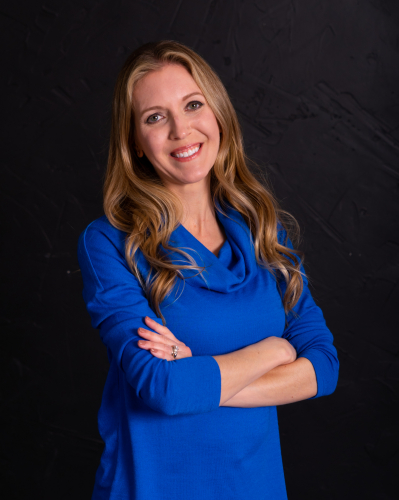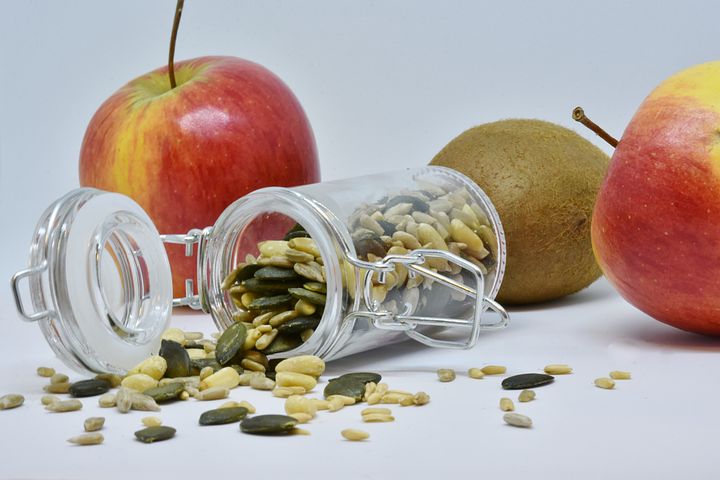Healthy Nurse, Healthy Nation™ Blog - Why Nurses Should Take Advantage Of Free Lifestyle Medicine CME
Published
By Cody Stubbe, MSN, RN
Cody Stubbe, RN, MSN, is a nursing instructor in Omaha, Nebraska, the co-leader of PCRM's Nurses Nutrition Network, a member of ACLM, the co-director of So Many Cooks in the Kitchen and So Many Kids in the Kitchen, a Food for Life Instructor, and is the president of Wholistcdish LLC.

The White House Conference on Hunger, Nutrition and Health last September culminated in an incredible $8 billion in public-private sector commitments to end hunger and reduce diet-related diseases by 2030.
One of them is near to my heart: The American College of Lifestyle Medicine’s (ACLM) $22 million in-kind commitment to provide 5.5 complimentary hours of continuing education in lifestyle medicine and food as medicine to 100,000 health professionals. Registration for the free “Lifestyle Medicine & Food as Medicine” course bundle is available here.
This opportunity is being well received across the nation. In New York City, for example, the free opportunity is being offered by the city’s health leaders to clinicians at 20 hospitals and health systems serving millions of New Yorkers.
As a clinical nursing instructor, I encourage all nurses to explore this opportunity to develop a foundation of knowledge that will impact how you treat patients, as well as your own health and satisfaction in the workplace.
What is lifestyle medicine?
When I worked as a critical care surgical nurse, I saw the outcome of lifestyle-related chronic disease every day. Patients with clogged coronary arteries, type 2 diabetes and advanced kidney disease undergoing invasive major surgeries or amputations.
I spent little time considering what specifically had led an individual to this level of advanced disease or whether there were behaviors or interventions that could have prevented it or treated it. But as the patients who needed surgical interventions for heart disease grew younger, I began investigating what could be done.
That led me to lifestyle medicine, a growing medical specialty that uses therapeutic lifestyle interventions as a primary modality to treat chronic conditions including, cardiovascular diseases, type 2 diabetes, and obesity. The use of current traditional treatments/therapies, such as medications, are still used in conjunction with lifestyle medicine interventions until they are no longer necessary. For example, someone that is already taking a medication for hypertension would continue that medication while starting lifestyle medicine interventions, and the dose would be lowered accordingly until they may no longer require the medication at all, due to the impressive effects of lifestyle medicine interventions. Lifestyle medicine-certified clinicians are trained to apply evidence-based, whole-person, prescriptive lifestyle change to treat and, when used intensively, often place into remission such conditions. Applying the six pillars of lifestyle medicine—a whole food, plant-predominant eating pattern, physical activity, restorative sleep, stress management, avoidance of risky substances and positive social connections—also provides effective prevention for these conditions. ACLM, the medical professional association that represents more than 9,000 health professionals educates, equips, and supports certification of physicians and other clinicians in lifestyle medicine.
Why nurses?
As I learned more about lifestyle medicine, I realized that nurses are well positioned to make lifestyle behavior interventions and address the root causes of chronic diseases.
- Nurses already spend much of their time educating patients. As busy as they are, nurses have more one-on-one time with patients than most other clinicians. Nurses are the first and last person a patient sees in an examination room. Even conversation while checking vitals or reviewing medication orders is an opportunity to discuss lifestyle behavior.
- We learn about patients’ lives. By building trustful relationships, we hear about their families, transportation challenges, home life, employment, physical activity and access to grocery stores or healthy foods. We can guide patients to resources to help resolve their specific challenges.
- Patients trust us. Nurses were named the most trusted profession for 20 years straight in the Gallup Honesty and Ethics poll. By sharing the evidence behind lifestyle medicine, we can inspire sustainable behavior changes that lead to whole health.
With about 70% of nurses reporting frustration and stress and 65% reporting exhaustion, incorporating lifestyle medicine into our own lives could be an effective antidote.
- Lifestyle medicine interventions can address inflammatory responses to stress through diet, physical activity, stress reduction techniques and restorative sleep.
- A plant-based dietary pattern can result in reduced anxiety and fatigue and increased emotional well-being and daily function.
- Addressing the root causes of disease with patients is more gratifying than merely addressing the symptoms. Lifestyle medicine is an opportunity to truly heal.
More health leaders and systems are recognizing that it’s time to finally start treating the root causes of chronic disease and will seek clinicians with the skills to do so. Prepare now by taking advantage of the free “Lifestyle Medicine & Food as Medicine” course bundle.

Not a member of Healthy Nurse, Healthy Nation (HNHN) yet? Join today!
Join our monthly challenges at hnhn.org/challenges.
Blog Quality of Life
02/10/2023 4:03pm CST



Post a Comment or Question